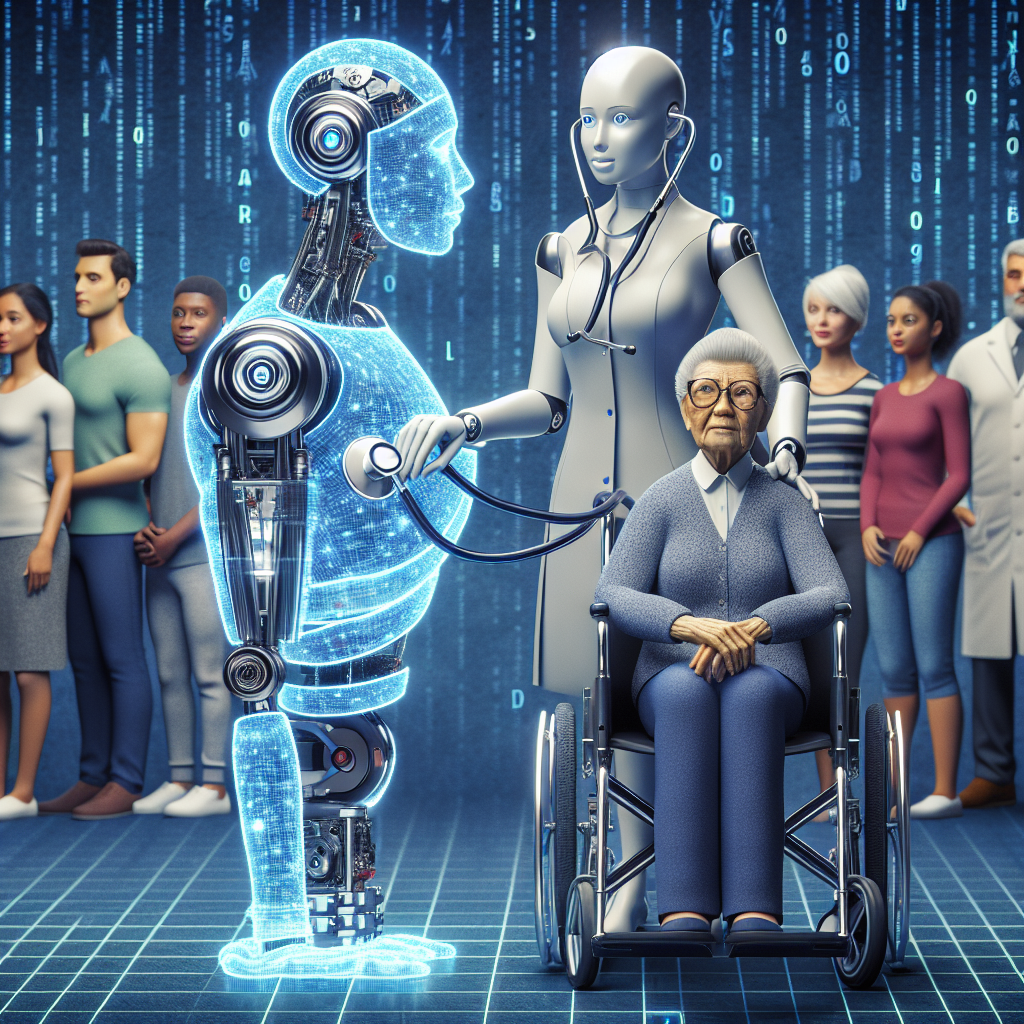Artificial intelligence (AI) has rapidly emerged as a game-changer in a wide range of industries, and healthcare is no exception. AI automation has the potential to revolutionize the way healthcare is delivered, making it more accessible, efficient, and affordable for patients around the world. In this article, we will explore the use of AI automation in healthcare accessibility, its benefits, challenges, and future implications.
Benefits of AI Automation in Healthcare Accessibility
AI automation in healthcare can offer a multitude of benefits, including:
1. Improved Diagnosis and Treatment: AI algorithms can analyze large amounts of data quickly and accurately, helping healthcare providers make more accurate diagnoses and develop personalized treatment plans for patients. This can lead to better outcomes and reduced healthcare costs.
2. Remote Monitoring: AI-powered devices can monitor patients remotely, collecting real-time data on their health status and alerting healthcare providers of any abnormalities. This can help patients manage chronic conditions more effectively and reduce the need for frequent hospital visits.
3. Streamlined Administrative Processes: AI automation can streamline administrative tasks such as appointment scheduling, billing, and insurance claims processing, allowing healthcare providers to focus more on patient care. This can improve efficiency and reduce administrative costs.
4. Predictive Analytics: AI algorithms can analyze patient data to identify patterns and trends, allowing healthcare providers to predict and prevent potential health issues before they escalate. This can lead to early intervention and improved patient outcomes.
5. Enhanced Patient Engagement: AI-powered tools such as chatbots and virtual assistants can provide patients with personalized health information and support, improving patient engagement and adherence to treatment plans.
Challenges of AI Automation in Healthcare Accessibility
While the potential benefits of AI automation in healthcare are significant, there are also challenges that need to be addressed, including:
1. Data Privacy and Security: AI algorithms rely on large amounts of data to function effectively, raising concerns about patient privacy and data security. Healthcare providers must ensure that patient data is protected and comply with regulations such as HIPAA.
2. Ethical Issues: The use of AI in healthcare raises ethical questions around issues such as bias in algorithms, accountability for decisions made by AI systems, and the potential for AI to replace human judgment. These issues need to be carefully considered and addressed to ensure that AI is used responsibly in healthcare.
3. Regulatory Compliance: The rapid pace of technological innovation in healthcare can outpace regulatory frameworks, creating challenges for healthcare providers in complying with evolving regulations. It is important for regulators to keep pace with technological advancements and ensure that AI applications in healthcare are safe and effective.
4. Cost and Access: While AI automation has the potential to improve healthcare accessibility, there are concerns that AI technologies may be costly to implement and maintain, leading to disparities in access to AI-powered healthcare services. It is important to address these cost issues to ensure that AI is accessible to all patients, regardless of their financial status.
Future Implications of AI Automation in Healthcare Accessibility
The future of AI automation in healthcare holds great promise, with the potential to transform the way healthcare is delivered and accessed. Some of the key future implications of AI automation in healthcare accessibility include:
1. Personalized Medicine: AI algorithms can analyze genetic, clinical, and lifestyle data to develop personalized treatment plans for patients, based on their unique characteristics and needs. This can lead to more effective and targeted interventions, improving patient outcomes.
2. Telemedicine: AI-powered telemedicine platforms can connect patients with healthcare providers remotely, enabling patients to receive care from the comfort of their homes. This can improve access to healthcare for patients in rural or underserved areas and reduce the burden on healthcare facilities.
3. Health Monitoring: AI-powered devices such as wearables and smart sensors can monitor patients’ health parameters in real-time, providing valuable insights into their health status and enabling early intervention when necessary. This can help prevent complications and reduce hospital admissions.
4. Drug Discovery: AI algorithms can analyze large datasets to identify potential drug candidates and predict their efficacy and safety. This can accelerate the drug discovery process and lead to the development of new treatments for a wide range of diseases.
5. Patient Empowerment: AI-powered tools such as health apps and chatbots can empower patients to take control of their health by providing them with personalized information and support. This can improve patient engagement and adherence to treatment plans.
FAQs
Q: How is AI automation being used in healthcare accessibility?
A: AI automation is being used in healthcare accessibility in a variety of ways, including improving diagnosis and treatment, remote monitoring, streamlining administrative processes, predictive analytics, and enhancing patient engagement.
Q: What are the benefits of AI automation in healthcare accessibility?
A: The benefits of AI automation in healthcare accessibility include improved diagnosis and treatment, remote monitoring, streamlined administrative processes, predictive analytics, and enhanced patient engagement.
Q: What are the challenges of AI automation in healthcare accessibility?
A: The challenges of AI automation in healthcare accessibility include data privacy and security, ethical issues, regulatory compliance, and cost and access issues.
Q: What are the future implications of AI automation in healthcare accessibility?
A: The future implications of AI automation in healthcare accessibility include personalized medicine, telemedicine, health monitoring, drug discovery, and patient empowerment.
In conclusion, AI automation has the potential to revolutionize healthcare accessibility, making it more personalized, efficient, and affordable for patients around the world. While there are challenges that need to be addressed, the benefits of AI automation in healthcare far outweigh the risks, offering a glimpse into a future where healthcare is truly accessible to all.

